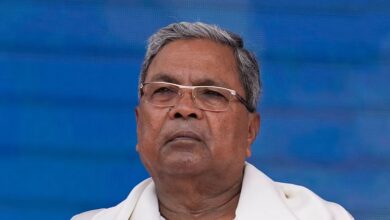A popular Facebook group supporting ousted President Hosni Mubarak has posted an electronic copy of a book that highlights the former leader’s achievements during his 30-year rule that ended in February of last year.
The book had been withdrawn from the market following the 25 January uprising against Mubarak, but the group’s members said they had managed to obtain an electronic version and republished it on their Facebook page.
The group, “Ana Asef Ya Rayes” (I’m Sorry Mr. President), which has over 234,000 members, said the book explains how Mubarak changed the country after he assumed power. The page’s administrator said the information in the book is supported by statistics and was originally issued by the Information Ministry’s Egypt State Information Service.
During Mubarak’s reign, textbooks and state-run media used to glorify his “insight” and statesmanship. But following last year’s revolt, many have called to purge textbooks of any mention of Mubarak and to remove his name from public facilities. His backers have opposed these requests.
On page 163, the book reviews political reforms Mubarak enacted between 1981, when he assumed power, and 2006. It highlights the constitutional amendments the former president made in 2005, which stipulated that the country’s president be elected through secret direct ballots. Mubarak’s opponents and other observers believe the amendments virtually helped Mubarak’s younger son, Gamal, who they suspected was being groomed by his father to succeed him.
The book also hails what it calls parliamentary stability during Mubarak’s rule, though many believe that the last parliamentary elections, held in late 2010, signaled his imminent fall, due to the flagrant instances of forgery that enabled his National Democratic Party to win more than 98 percent of vote.
The book also discusses freedom of the press and expression, which, it says, was part of Mubarak’s reform policy.
Under Mubarak, the book explains, human rights were respected in line with international conventions to which Egypt is party. It also highlights laws Mubarak issued to regulate the work of civil society organizations.
One section of the book details Mubarak’s policy for countering overpopulation and unemployment issues, while another part talks about how his reforms helped the economy survive multiple crises.
The seventh section of the book, the shortest, discusses the welfare indicators of Egyptian families under the toppled president.




